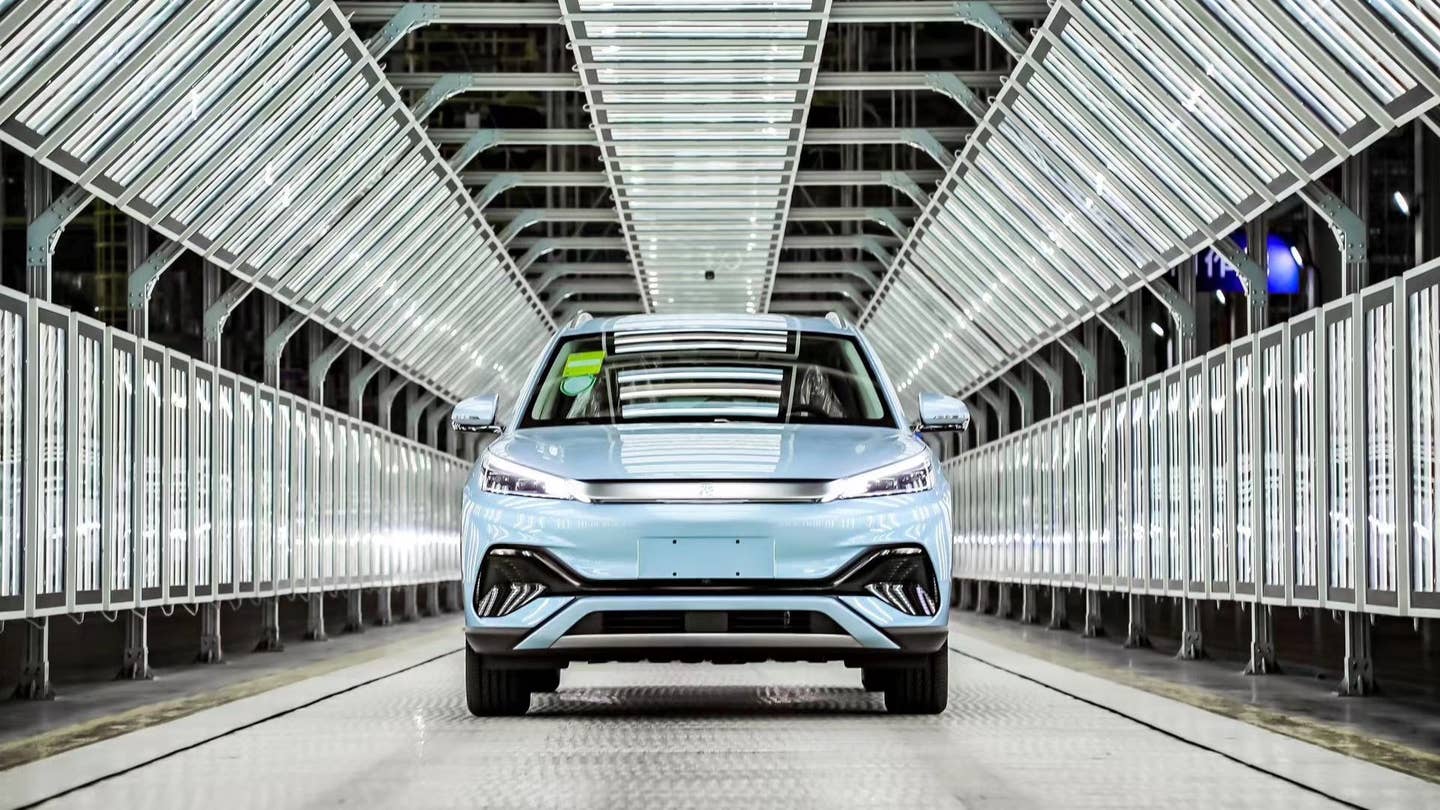Chinese Carmakers Want Factories In Mexico. That Can Mean Only One Thing
The only carmaker that sells more EVs than Tesla is making moves that could open a door to the U.S. market.

The question of Chinese cars reaching the United States is no longer an if, but a when. The country's auto industry, which Tesla CEO Elon Musk fears could "demolish" western rivals, is rapidly expanding outside its home market and strengthening footholds in Europe and Australia. Now, multiple Chinese automakers have eyes on Mexico, and are exploring—or have already built—factories there. Doing so puts them not just on the doorstep of the U.S. market, but could fully open the door to them.
Foremost among China's contenders is BYD, which sold more EVs in Q4 2023 than Tesla did. Nikkei Asia reports the company is conducting a feasibility study and negotiating with the Mexican government for construction of a factory, for which several potential sites have been identified. That puts BYD on similar ground to SAIC, which Financial Times reports also seeks a Mexico factory for its repatriated MG brand. The competing Chery is also pursuing a plant according to Fortune. JAC meanwhile already has a plant in Mexico, though its planned 2019 U.S. market entry never panned out.
Mexican manufacturing is of great importance to carmakers from across the world due to its cheap labor and access to the U.S. market. (The fact that the industry is consolidating there is only a bonus.) Mexico is a member of the United States-Mexico-Canada Agreement, the NAFTA successor that lowers trade barriers between North America's three biggest economies. It allows vehicles like the Mexican-made Ford Maverick to be exported to the U.S. without incurring the 25-percent "Chicken Tax" on light trucks, which shuts out foreign competition like the Chevrolet Montana, Japanese kei trucks, and a range of cheap Chinese alternatives. Some of them are even quite stylish.
But that may not last, because Mexican production offers China another benefit as the U.S. tries to drive EV adoption. Our new federal EV tax credit requires a vehicle to be assembled in North America and for its battery minerals to be sourced or processed within Agreement countries in order to be eligible. That would mean a Mexican plant would not only skirt some of the U.S.'s protectionist tariffs, but also allow buyers of Chinese EVs to claim federal tax credits.
That is, unless the U.S. enacts further protections of the sort the Biden administration is reportedly considering. On top of increased import duties, Bloomberg reports the White House is also considering restricting other EV component origins, claiming surveillance and security concerns related to "smart" connected cars. Any measures against China, however, may see retaliatory policies enacted in return.
As much noise as the federal government makes about getting people into EVs, it clearly only cares to do so under the condition that those EVs come from within the U.S.'s sphere of influence. Chinese EVs could fast-track the process, but EV adoption is evidently a secondary goal. There's no avoiding the political nature of the multitrillion-dollar car industry, and EVs are means to an end to both superpowers. Whose ends and what EVs though probably won't be decided by increasingly budget-conscious consumers, but in the halls of power.
Got a tip or question for the author? You can reach them here: james@thedrive.com
